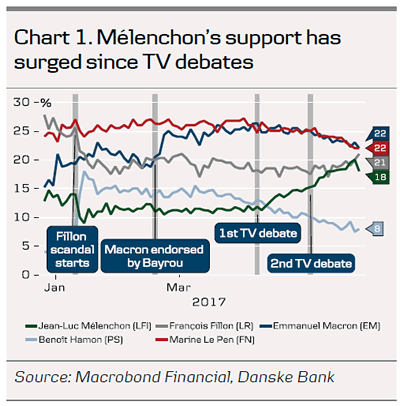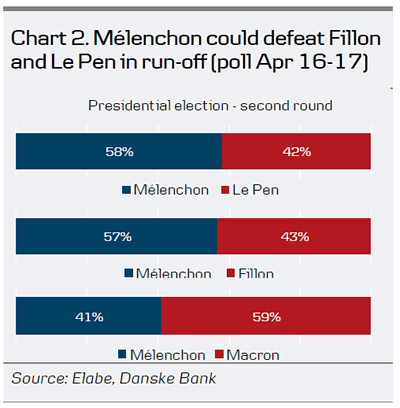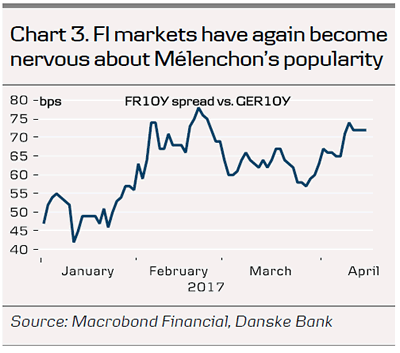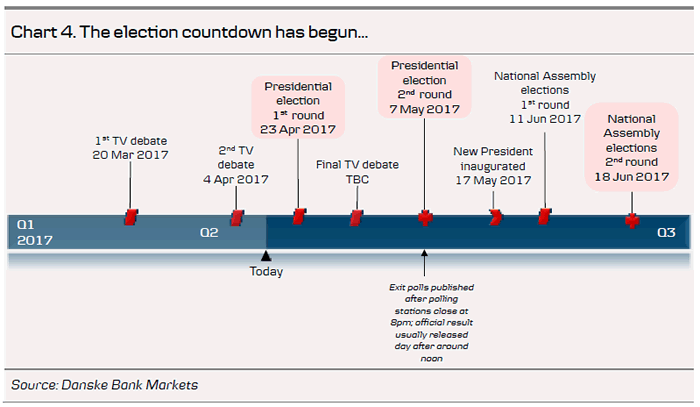The most notable development since French Election Monitor #1 has been the stellar rise of left-wing candidate Mélenchon in the polls after a strong performance in the TV debates (see Chart 1). Ahead of the first election round this Sunday, the race between the four leading candidates Marine Le Pen, Emmanuel Macron, Francois Fillon and Jean- Luc Mélenchon remains wide open and the outcome is likely to be tight. Although a runoff on 7 May between Le Pen and Macron still seems to be the most likely outcome according to the polls, Mélenchon entering the second round now cannot be ruled out.

Should Mélenchon reach the run-off, opinion polls show that he could win against Fillon or Le Pen (see Chart 2). With his wish to renegotiate EU treaties and hold a subsequent EU exit referendum on the result as well as ending the independence of the ECB, his programme displays a similar EU-sceptic and anti-globalisation stance to Le Pen’s. He rejects free trade agreements and the rules of the Stability and Growth Pact and advocates an alliance of southern European countries to fight austerity. Furthermore, Mélenchon wants the Bank of France to buy public debt and repeal the El Khomri labour market reforms. A potential run-off between the two EU-sceptics Mélenchon and Le Pen seems to be the biggest risk-scenario in the market at the moment and as a result we already saw the France 10Y spread to Germany widen to just a few bps from the highs in February (see Chart 3). However, even if Mélenchon should win the presidency, he faces the same parliamentary hurdles as Le Pen in implementing his programme or holding a referendum, as his party is unlikely to obtain sufficient seats for a majority.


Should he qualify for the second round, Macron is still seen winning the presidency irrespective of his opponent, according to the latest poll. However, the indecision of his supporters (only 72% are certain of their choice) and the expected lower participation rate (68%), due to widespread dissatisfaction with the established political class, could decrease his chances on election day and benefit Le Pen, whose supporters remain the most certain of their choice (89%). However, our base case remains that she will not win the presidency.

